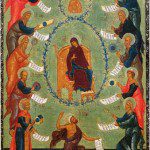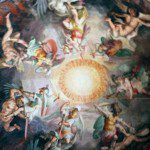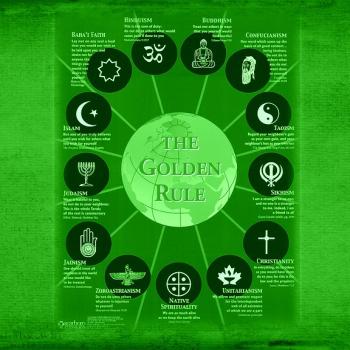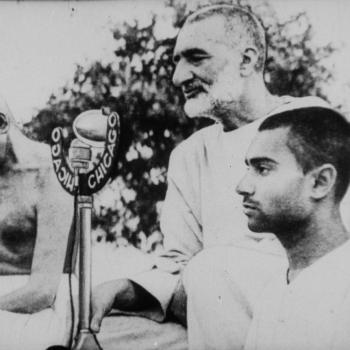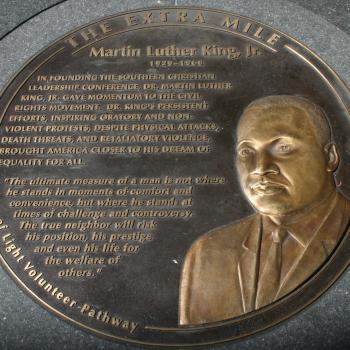
Doctor Who has been my favorite television series (and audio series) since I watched a Tom Baker story, Creature from the Pit, one auspicious Sunday evening of my youth. It was not the best Doctor Who story, and it should not have attracted me to the series.
But it did.
Long before the show became popular thanks to its rebirth, I have been a fan. And this is because I was able to see and enjoy this silly little story and have fun laughing at it with my father. It seemed so absurd it was hilarious. When, the next week, I discovered there was more of this crazy series being shown, when nothing else was on, I started watching more. After a few weeks, I started taping the show, and, unknown to me at the time, when they started playing earlier, classic stories such as Genesis of the Daleks. Then, a few weeks later, they played the very last Tom Baker story, Logopolis, which at the time left me more than a little confused. What had happened at the end?
I was hooked and wanted to know more, so I looked at the Doctor Who section at various bookstores, and quickly discovered the long history of the series and discovered its concept of regeneration. When the show would return, on a different station, and start with Castrovalva, I was ready, finding myself enjoying Peter Davison’s take of the Doctor.
Doctor Who is a unique series because it is able to change its format quite drastically from story to story, season to season, often because the lead actor has changed. This allows the show to be a science fiction variety series, with something for everything: some stories are historical based, some are sophisticated science-fiction tales, some are more spy-like action adventures, and most stories contain more than its fair share of humor. If you don’t like a particular story, it won’t be long until something new comes along, and more than likely, it will satisfy.
Because of its nature, being a science fiction show which allows the heroes to go anywhere in time and space, it is capable of exploring various aspects of human existence, including, and especially, religion and its positive and negative influences on society. There are several stories which incorporate religious elements to form the superstructure of the tale, but other times, the story itself serves as a reflection on philosophical and religious themes.
Often the religious element is quite apparent, but sometimes it is not (especially of the story serves as an allegory, either for or against some religious belief). And yet such stories offer something to the viewer and are worth highlighting, no matter whether or not I agree with a particular view being portrayed within a given story. A story which is well told should be able to be enjoyed without such secondary themes, but if we do enjoy the story, it is often enjoyable to interact with them and what they tell us, to see if we agree or disagree with what was presented, and why.
What follows is a list of the ten Doctor Who stories which I believe are the best televised adventures which incorporate some significant religious element to the story. As the stories are written by authors of various different backgrounds, using the series as a common ground, it allows for a unique form of interfaith dialogue, where each author is free to add their own ideas into the mix. Our telling of stories can be a very good way in which we engage each other in interfaith dialogue because we tend to be open and interested in what is being said, an openness which is not always there when we engage religious themes in non-fictional prose reflections.
I have ranked the stories taking into consideration both the quality of the story and the quality of its use of its religious element. Because of the complexity of the plots and their use of religion, what I offer in relation to each should not be seen as representing everything in the story, but what I believe are the highlights needed in order to give a rough idea of the story and its use of religion in it.


